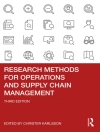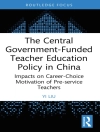This book historically maps and examines the evolving, contemporary geostrategic and geopolitical imperatives of the United States within Pakistan and the South Asian region, especially after September 11, 2001. It offers a detailed and theoretical account of the rapidly changing context of US foreign policy towards Pakistan after 2001. The history of the US-Pakistan relationship has been a complex and inscrutable mix of cooperation and conflict has turned even more challenging after 9/11. This book covers the latest developments and relevant themes from world politics as it discusses the impact of the unprecedented rise in religious extremism in Pakistan, stemming from the US War on Terror as well as Pakistan’s economic vulnerability and military dictatorship, India’s offer to support the US in its war in Afghanistan, Pakistan’s nuclear capability, and the US administration’s decision to end financial aid to Pakistan. The study highlights the fact that, from the receding of British influence in the region through the Cold War and post-Cold War phases to the post-9/11 period, US-South Asia policy has been informed by the theoretical paradigm of the grand strategy of primacy.
This topical book will be useful to scholars and researchers of international relations, politics, political studies, strategic and defence studies, security and peace studies, foreign policy, area studies, and South Asian studies. It will also interest diplomats, politicians, policymakers, security experts, journalists, and think tanks interested in India, Pakistan, and the United States on issues of international politics, world affairs, and terrorism.












